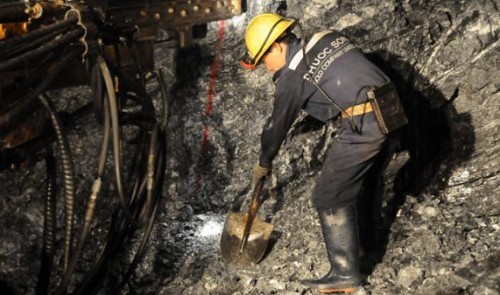Mining Archives Canadian International Council Canada s hub for international affairs
Post on: 4 Июнь, 2015 No Comment

Will mining investors buy into Chile’s ‘new deal’?
Current government promoting ties between private sector and communities
Chilean mining officials were in Toronto last week for Prospectors and Developers Association of Canada (PDAC)’s annual convention — bringing with them new branding for the country’s mining sector.
The delegation arrived just days before President Michelle Bachelet completed the first year of her current term in office. Since her term began in March, 2014, her government has spent months convincing foreign investors that a tax reform to finance improvements to the public education system is a win-win situation.
That was the message this year at PDAC, where the country’s Vice Minister of Mining, Ignacio Moreno, sat down with OpenCanada to discuss a “new deal” between communities and mining companies. More
Chile’s congress approved Bachelet’s tax reform package in late 2014, despite criticism from the business sector that it will be a disincentive for foreign investors. The new tax laws. which will not come into full effect until 2017, will no longer allow companies to retain profits without paying tax for several years.
“We have to explain why we need a tax reform,” Moreno said. “We have an issue in education in Chile and the result is productivity in human resources is quite low… The way we have to work on this in the long term is to improve public education. And to improve public education we need financial resources.”
“We don’t think we are going to lose any business. We may, but it’s not very significant… We will have rules very similar to the rest of OECD countries.”
The current challenge for Chile has been building over the past decade. The country remains largely dependent on its mining sector, which produces around a third of the world’s copper. As a result of its investor-friendly status, Chile became South America’s first member of the Organization for Economic Cooperation and Development (OECD) in 2010. Meanwhile protests over the state of its public education system and environmental and indigenous rights have ramped up in recent years. In a 2014 report, the OECD said Chile had the widest inequality gap of all its 34 members.
Bachelet’s tax reforms are part of a larger effort to make peace between the private sector and members of civil society who have felt left out of business decisions, despite their impacts.
“Communities have much more access to information right now with Twitter and Facebook and so on,” Moreno said. “ So when a project is impacting a community, the information is available for the whole country very quickly, so that’s why the level of transparency that is needed is much higher right now than in the past.”

So while private sector delegations are attempting to convince partners abroad, another battle continues at home. “We don’t have another economical sector that is able to produce such a positive impact in terms of investment, innovation, employment. So we have to be able to explain to the country that we need the mining sector and that means that we have to build a new relation between communities and mining sector,” Moreno said.
Mark Levine, a mining consultant based in Colorado, U.S. has been considering investing in Chilean mining projects the past several years, he said, but the reforms do worry him. “I do see this as a significant disincentive, but not necessarily fatal — depends on the attractiveness of the enterprise as a whole,” he said. “The very high economic growth rate that Chile has enjoyed was as a result of economic policies that favoured private sector capital formation for business investment. Perhaps the more recent leaders have felt that it is now time to harvest the results, but I think that is a mistake.”
Lawyer Santiago Montt, who was part of the Chilean delegation this year, refuted the reform as a “significant” change, saying any government who would create such a drastic disincentive “would be stupid,” considering the country’s dependence on foreign investment.
The reforms themselves raise the debate over foreign companies’ role in improving the communities or countries in which they work, as well as the balance governments need to strike between meeting the needs of their constituents, protecting the environment and promoting a prosperous economy.
As a member of Chile’s Socialist Party, Bachelet’s proposals did not come as a complete surprise, however the previous government, led by billionaire Sebastian Piñera, also showed signs of a country less willing to compromise its environmental and human rights standards. In 2013, Canadian mining giant Barrick Gold was fined $16.4 million for failing to comply with environmental regulations at its Pascua Lama mine site, one of the largest gold projects in the world.
Moreno emphasized that Chile is simply bringing its standards up to par with other OECD countries — with Canada and Australia as its two most significant role models for mining standards, he said — and investors from those countries should no longer expect any less when going abroad. “Im not really concerned about whether or not there is a double standard. The fact is, we have a situation and we are working on it… We hope it will have a very positive impact in productivity in the long-term, but we need to face this situation right now.”














